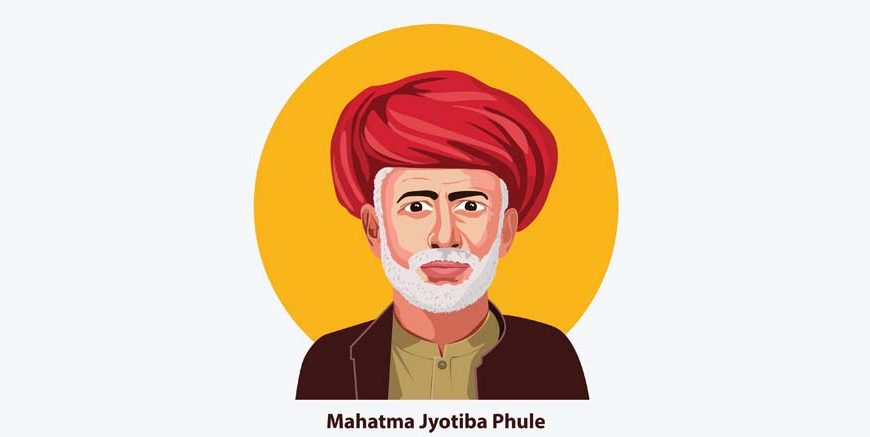Mahatma Jyotiba Phule was a remarkable social reformer who dedicated his life to fighting against discrimination and promoting education. His efforts to uplift women and lower-caste communities transformed Indian society, making him one of the most respected figures in history.
This Mahatma Jyotiba Phule Essay explores his early life, his contributions to education, and the formation of the Satyashodhak Samaj. His story is an inspiration, especially for parents, as it highlights the importance of education and equality in shaping a better future for children.
Early Life and Background
Jyotiba Phule was born in 1827 in Maharashtra into a family that belonged to the Mali (gardener) caste. At that time, society was divided into rigid caste groups, and lower-caste people faced extreme discrimination. His father was a vegetable seller, and his family was not considered socially significant. Despite these challenges, Jyotiba was a bright child with a strong will to learn.
The formal education of Jyotiba Phule began at a local Marathi school, but his studies were interrupted. Later, he joined a missionary school in Pune, where he was introduced to revolutionary ideas about equality and human rights. He read about great thinkers like Thomas Paine and was deeply influenced by their views on freedom and justice. This exposure helped shape the thought of Jyotiba Phule, inspiring him to fight for social change.
One incident that changed the life of Jyotiba Phule occurred when he attended a friend’s wedding. The groom’s family, who belonged to an upper caste, insulted him because of his background. This deeply hurt Jyotiba, but it also opened his eyes to the unfairness of the caste system. From that moment, he resolved to dedicate his life to fighting discrimination and bringing about social reform.
Contribution to Women’s Education
At a time when educating women was considered unnecessary, Mahatma Jyotiba Phule strongly believed that education was the key to progress. He realised that women, especially from lower castes, suffered the most due to a lack of education. To change this, he started the first school for girls in 1848 in Pune, with his wife, Savitribai Phule, as the first teacher. This was a revolutionary step, as society did not accept educating girls.
Despite facing immense opposition from orthodox groups, Phule continued his mission. His wife was often harassed on the way to school, as people threw dirt and stones at her. However, the couple remained determined. Over time, they established more schools for girls and children from lower-caste communities.
Phule also opposed child marriage and strongly supported widow remarriage, which was unheard of in those times. He set up a home for widows who had nowhere to go and even adopted a child born to a widow, setting an example for society. His efforts in promoting education were not just limited to girls but extended to all those who were denied knowledge due to their caste or social status.
Formation of the Satyashodhak Samaj
Mahatma Jyotiba Phule did not stop at education. He wanted to bring social and economic justice to all. In 1873, he established the Satyashodhak Samaj, which means “Society of Truth Seekers.” This organisation aimed to promote equality, fight against caste discrimination, and remove superstitions that kept people oppressed.
Jyotiba Phule’s thought was clear—he believed that all people, regardless of caste or gender, should have equal rights. The Satyashodhak Samaj encouraged people to conduct weddings without Brahmin priests, rejecting caste-based hierarchy.
One of his most powerful contributions was his book Gulamgiri (Slavery), published in 1873. In this book, he compared the situation of lower-caste people in India to the condition of enslaved people in America.
Mahatma Jyotiba Phule also took practical steps to promote equality. He opened his home and even his water well to people from lower castes, at a time when such acts were considered unacceptable. His belief in unity and justice made the Satyashodhak Samaj a powerful movement that continued to influence social reform long after his death.
Conclusion
Mahatma Jyotiba Phule was not just a social reformer—he was a visionary who understood that education and equality were the keys to building a better society. His fight against discrimination, his efforts in promoting education, and his formation of the Satyashodhak Samaj created a lasting impact on India.
The life of Jyotiba Phule teaches us that no matter how difficult the circumstances, one person’s courage and determination can change the world.
Mahatma Jyotiba Phule Essay reminds us that parents play a crucial role in shaping their children’s values. By teaching kids about equality, kindness, and the importance of education, we can help create a fairer and more just society. By remembering and celebrating Mahatma Jyotiba Phule’s contributions, we can continue his mission of spreading knowledge, equality, and justice in the world today.
Fun Activity for Parents and Kids:
Let your child imagine they are opening a school for underprivileged children, just like Mahatma Jyotiba Phule did. Ask them:
- What subjects would they teach?
- How would they make learning fun for everyone?
- What would they name their school?
Encouraging such discussions can help children develop empathy and an appreciation for education.
Parent-Child Discussion:
- What do you think was Mahatma Jyotiba Phule’s biggest achievement?
- Why is education important for everyone?
- How can we help make the world fairer for everyone?
Such conversations can help children understand the value of fairness and inspire them to be kind and just in their own lives. If you are looking for more such stories on inspiring historical figures, check out our blog, Inspirational Historical Figures For Children To Learn About. Don’t forget to check out EuroKids Blogs for more information on your little one’s health, development, and learning. Also, visit EuroKids Preschools for the first step in your child’s learning journey!















